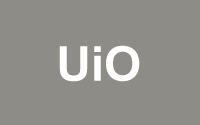This course surveys the state-of-the-art in international relations (IR) theory. Social theoretically, theoretically and substantively, we range broadly, exploring: the multiple meta-theoretical bases of IR (how new thinking on causality, uncertainty and ontology affects IR theory and method); research that links governance/order/ordering to legitimacy; experimental IR and IR survey experiments; non-Western IR theory; new work on the micro-foundations of international norms; practice theory and the practice turn as the new constructivism; and research on international institutions, hierarchy and closure. We also engage and assess recent special issues of journals that have come to represent two different ways of doing IR – the European Journal of International Relations and International Organization.
A theme throughout the seminar will be if all this new IR theory is ready for prime time. That is, does it help us better explain, understand and critique a 21st century marked by the return of large-scale conflict; global health crises; the rise of China; a populist backlash against globalization; climate change; and a new, deeply national and inward-looking identity politics?
Learning outcomes
- You will gain an in-depth understanding of contemporary international relations theory.
- You will learn how to evaluate IR along various dimensions: meta-theory; theoretical breadth and depth; ethics; western/global/post-colonial; causal inference / validity; interpretive understanding; and empirical insight.
- You will develop your own perspective on the pluralism that has come to define IR over the past 15 years. Is this development bad, or good – and why?
Admission
The course is open to PhD students in political science and related disciplines; there is no participation fee.
The application deadline is 30th November 2023; students will be notified about the outcome of their application by the end of December.
The schedule and complete reading list will be published November 15th.
Course web page (will be published November 15th)
Obligatory requirements
There are five requirements:
- Reading: Read the assigned literature in advance
- Discussions: Active participation in them
- Discussion Questions: Prepare them for all sessions on days 1-2 and days 4-5
- Students should prepare 2-3 questions for each session, with your questions reflecting a critical engagement with and assessment of the readings. What are their strong and weak points? Their meta-theoretical, theoretical, methodological, ethical, or empirical contributions-omissions? Preparing these questions/comments is not intended as a writing exercise; indeed, they can be quite short.
- Response Memo: Choose one session on days 1-2 and 4-5 and prepare a response memo to its readings.
- These memos will be three-pages (double-spaced) and should critically interrogate the readings for that session. What works and why? Are there meta-theoretical, theoretical, ethical or methodological problems? Is there something new in the readings or are they just ‘re-inventing the wheel’?
- Course Essay: Students should prepare an analytic essay based on their response memo. It will be 3,000 - 4,000 words and is due by March 15th 2024
